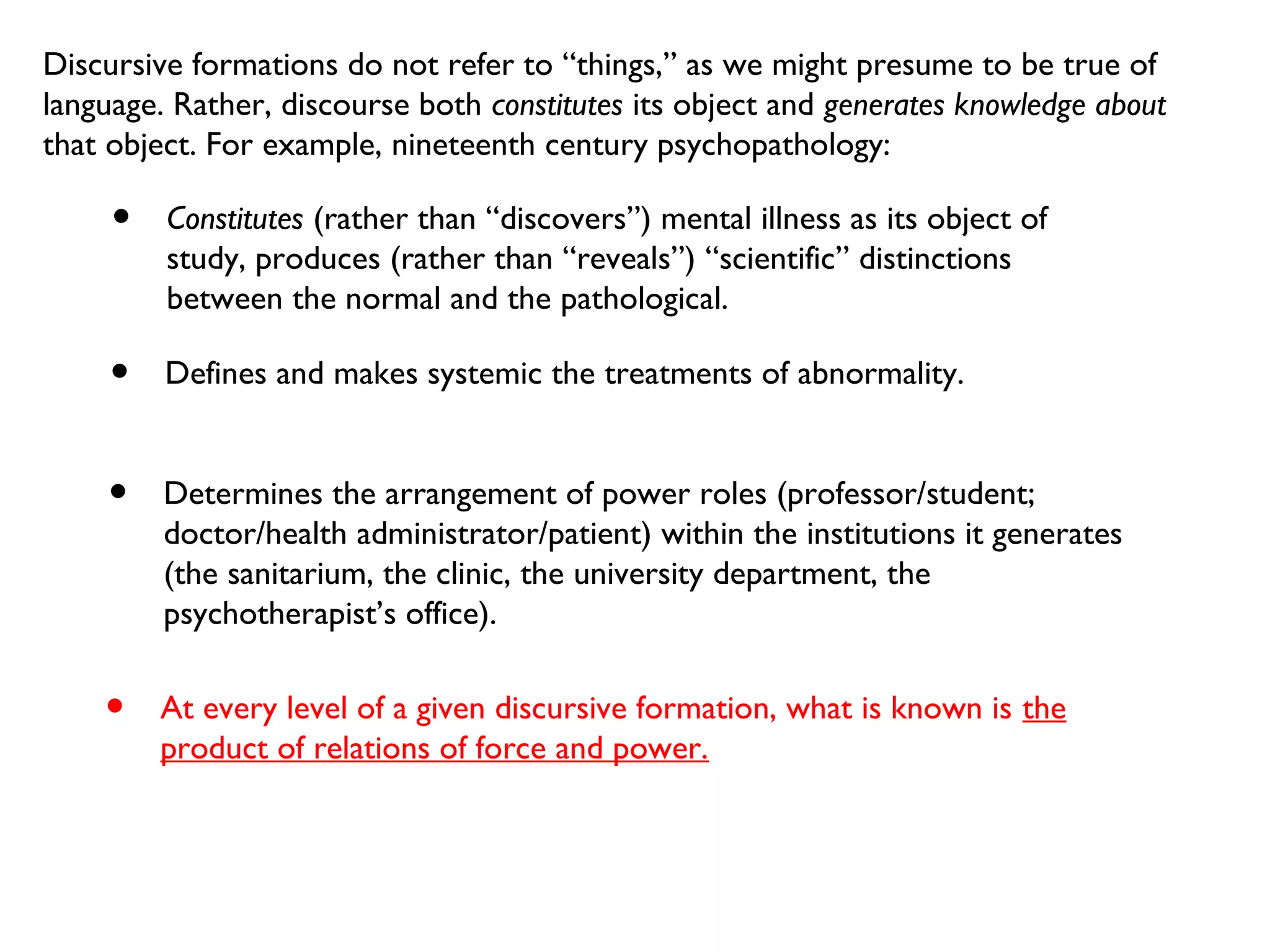This document provides an overview of the Marxist theories of Louis Althusser and Michel Foucault regarding ideology and power. It summarizes that Althusser argued that Ideological State Apparatuses like education ensure the reproduction of societal relations of production by hailing individuals as subjects through ideology. Foucault shifted from studying epistemes to exploring how power produces domains of knowledge through discourse and determines regimes of truth, constituting subjects through diffuse matrices of power and knowledge.


















